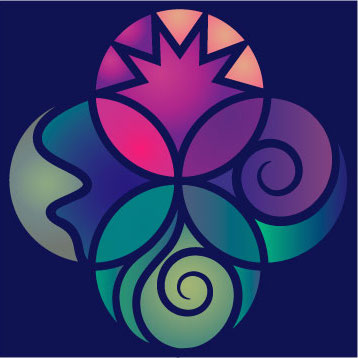Vision
/A local truck driver had a sore eye.
“I woke up last night about 11 and was up all night with it. Painful eye. All around the eye and inside it. The nurse tested it with the bright light this morning. He put dye in it and everything. Wanted me to see you.”
The vision in the painful eye had worsened since morning. His pupil was distorted.
I went to see my colleague. “Lie him out here while I call the opthalmologist. He’ll be flown out. We haven’t got the medicines here. Patch the eye. Give him pain relief.”
While I was phoning, arranging the evacuation, we were all aware that it might take 10 hours to get the truck driver to hospital. All aware, too, that he could go blind in that eye waiting for the plane.
I began my intern year in the psychiatric ward of a rural hospital. I was so new I didn’t know how to fill out a medication chart. The psychiatrists were kind men. My supervisor, especially, was sweetly patient to people with mental illness, helping them feel safe.
“I hate the way we learn at the expense of our patients,” I said to him one day after I’d struggled to put a needle into the fine vein of a patient. I’d bruised her with no therapeutic result. Doctors were expected to learn venepuncture on the job.
“It’s the nature of medicine. They’re hurt and we learn,” he said, looking over his reading glasses. “I reckon when you’re an intern they should just give you a patient to kill and get it over with. As a doctor, you’re going to make a mistake and someone will die. It’s just a matter of time.”
“Did one of your patients die because of you?” I queried softly.
“Sure. Gave a lady with heart failure too much fluid and put her in pulmonary oedema. She had a heart attack. I’ll never forget her,” he said sadly.
Early in my intern year I had a vision. I was lying in bed, relaxed but awake. I felt myself swept into the Dreaming. I’d thought the Dreaming was within the Earth, but now I travelled among the stars, floating without any resistance. I felt a shower of love washing through every particle of my being.
It was Mathew. He showed himself like a Wandjina made of sparkling, multicoloured tiny brilliances — like lights. “Look at you, Matty! So beautiful!” I thought. His colours sparkled and changed their depth. I felt his smile. “Look at yourself, Nel.” Where my body usually was, I saw my own iridescent lights. “We do continue, see?” he thought to me. Five years after his death, my dear friend showed me how his spirit flourished. I was given the unshakeable knowledge that we are so much more than our bodies.
It was a year of great learning but I was also lonely. Living away from my son made my need for companionship starker. One day I went and sat under a tree and asked for my partner to come.
Internship was a series of six or eight-week terms in different types of medicine. You have a month or two to begin to understand what you’re doing, then you’re moved to a completely different situation. After psychiatry, I went to work in a surgical ward. Many of the patients there were frail old people who barely survived their surgeries.
Performing surgery was all that the junior docs (my seniors) were living for. It was not unusual for them to be working for 72 hours straight. I didn’t know much medicine and was surrounded by sleep-deprived zombies. The nurses were stressed.
“We look after the surgeries, it’s your job to look after the medicine,” I was told. That meant everything from relieving pain to figuring out whether a patient with chest pain was having a heart attack. It also meant talking to the patients and their families, trying to communicate what you’d learned from them to the surgical team.
Rounds were brief. “What did he say?” patients would ask me as I left the room, trailing the surgeons. “You can go home after you’ve opened your bowels,” was the most welcome response.
One night, one of our patients died through a series of mistakes on our ward. She may well have died anyway, but taught us as she went by revealing a series of holes in the system we worked in. I cried for a week.
That year, I had begun an email conversation with a woman I met on a dating site. Originally from the Black Forest, she’d lived for years in the tropics as a diving instructor. Over the months, her letters were kind and cheerful, my replies succinct.
I wrote that my patient had died, that I didn’t know if it was partly my fault. Claudia came from Europe to look after me.



